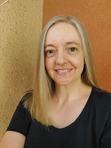Jessica Knauss's Blog, page 40
January 21, 2013
Novels in the Spotlight
I introduced my enormous project, The Seven Noble Knights of Lara, on this blog in early 2011 with an exciting announcement: my "pitch" was up for reader voting at the Book Doctors' NaNoWriMo Pitchapalooza. (See that post here. The Book Doctors' link is still active, so you can still see the pitches I was up against.)
At that point, I knew I would one day finish the book, but I never dreamed I would have the opportunity to attend one of these Pitchapalooza sessions in person. Happily, I heard about the one that took place at Anderson's (fabulous independent) Bookstore in Naperville this last Saturday just in time to make a snap decision about what to do with the weekend and the gas money.
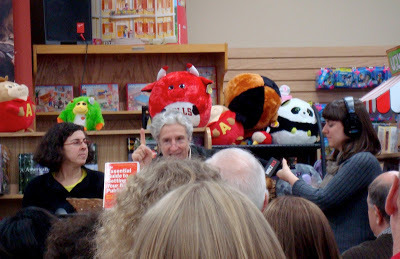 You have one minute. Sixty seconds only!
You have one minute. Sixty seconds only!
The way it works is that they randomly select twenty writers from all those in attendance and those writers give all the information they can about their book in just sixty seconds. It's meant to be like the pitch you would write in your query letters, but it also helps make writers more orally articulate about what makes their books so wonderful. The panel of judges in Naperville included The Book Doctors (Arielle Eckstut and David Henry Sterry, authors of The Essential Guide to Getting Your Book Published among other achievements), as well as a knowledgable middle grade author and charming representative of Loyola Press whose names I lost in all the excitement. After all the presentations, they chose a winner who received a most coveted prize: an introduction to an agent or publisher in their book's genre.
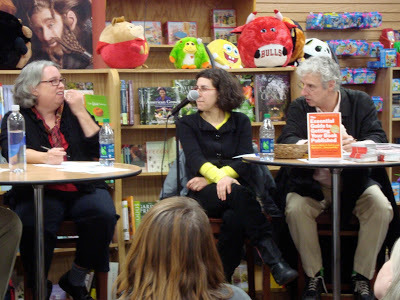
It was two hours of laughter and nerves. I convinced myself that because there were forty or fifty writers in attendance, and The Seven Noble Knights of Lara had already been randomly chosen before, it could not possibly be again. Just in case, I had my pitch pared down to a one-minute delivery time and printed out in the leaves of my notebook. My unspeakably wonderful husband took photos of the event. And then, when my name was called, he took a video of my pitch.
Yes, I was randomly selected again! It's a sign, folks. This book is going places. The video of my pitch is hard for me to watch, but please be aware that I was suffering some intense stage fright. I'm thrilled I was actually speaking coherent sentences!
The delivery sounds pretty fast to me -- I wanted to fit a lot in -- but these guys are from the New York publishing scene. They can listen fast. They all seemed to enjoy it quite a bit. The video doesn't include it, but The Book Doctors actually said, "I can tell you're a writer just by listening to you speak, and that you're the right person to write this book." How often do you get that kind of outside, impartial validation of the work you love to do? Not often!
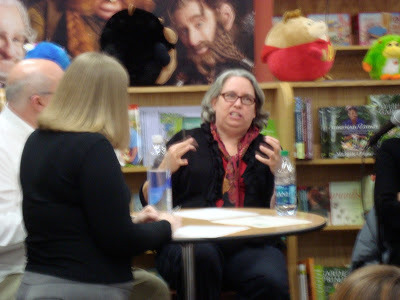 That's the back of my head. The front of it is receiving great wisdom.
That's the back of my head. The front of it is receiving great wisdom.
And trying to take notes with a hand that's shaking with nerves!
I got lots of really great feedback I'm looking forward to using to further hone my pitch. Some of the feedback is in this video.
I had purposefully left out the comparisons with popular books, planning to look around some more and really think it over. But they gave me the most to think about with the YA suggestion. This is not the first time someone has said my book might be YA. I've been through a lot of discussions about what distinguishes YA from general adult, and it's ranged from sex to violence to the ages of the protagonists and grade level of the language. But these fine panelists made the unique suggestion that the pacing of the book has a lot to do with which shelf a book belongs on. While The Seven Noble Knights of Lara is definitely fast-paced, I remain skeptical that liking a lightning-fast story is the domain of any one age group. I've got more investigating to do before I can decide how to categorize the novel. I'd hate to say it's YA just because that's what will sell.
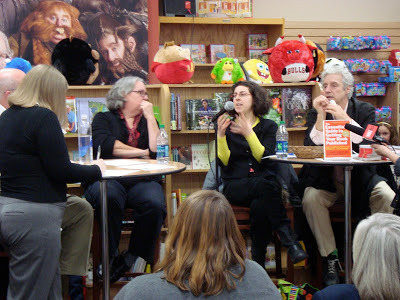
I didn't win this round, although my husband swears I must have been first runner-up. The prize went to a well-presented book about a gay hockey player in Chicago in the 1920's. It goes to show, different and defined are what counts most when finding your audience.
To cap off the whirlwind day at Anderson's, I spoke briefly with Arielle and Henry David and it turned out that they remembered my pitch from two years ago! It's always good to be memorable.
At that point, I knew I would one day finish the book, but I never dreamed I would have the opportunity to attend one of these Pitchapalooza sessions in person. Happily, I heard about the one that took place at Anderson's (fabulous independent) Bookstore in Naperville this last Saturday just in time to make a snap decision about what to do with the weekend and the gas money.
 You have one minute. Sixty seconds only!
You have one minute. Sixty seconds only!The way it works is that they randomly select twenty writers from all those in attendance and those writers give all the information they can about their book in just sixty seconds. It's meant to be like the pitch you would write in your query letters, but it also helps make writers more orally articulate about what makes their books so wonderful. The panel of judges in Naperville included The Book Doctors (Arielle Eckstut and David Henry Sterry, authors of The Essential Guide to Getting Your Book Published among other achievements), as well as a knowledgable middle grade author and charming representative of Loyola Press whose names I lost in all the excitement. After all the presentations, they chose a winner who received a most coveted prize: an introduction to an agent or publisher in their book's genre.

It was two hours of laughter and nerves. I convinced myself that because there were forty or fifty writers in attendance, and The Seven Noble Knights of Lara had already been randomly chosen before, it could not possibly be again. Just in case, I had my pitch pared down to a one-minute delivery time and printed out in the leaves of my notebook. My unspeakably wonderful husband took photos of the event. And then, when my name was called, he took a video of my pitch.
Yes, I was randomly selected again! It's a sign, folks. This book is going places. The video of my pitch is hard for me to watch, but please be aware that I was suffering some intense stage fright. I'm thrilled I was actually speaking coherent sentences!
The delivery sounds pretty fast to me -- I wanted to fit a lot in -- but these guys are from the New York publishing scene. They can listen fast. They all seemed to enjoy it quite a bit. The video doesn't include it, but The Book Doctors actually said, "I can tell you're a writer just by listening to you speak, and that you're the right person to write this book." How often do you get that kind of outside, impartial validation of the work you love to do? Not often!
 That's the back of my head. The front of it is receiving great wisdom.
That's the back of my head. The front of it is receiving great wisdom. And trying to take notes with a hand that's shaking with nerves!
I got lots of really great feedback I'm looking forward to using to further hone my pitch. Some of the feedback is in this video.
I had purposefully left out the comparisons with popular books, planning to look around some more and really think it over. But they gave me the most to think about with the YA suggestion. This is not the first time someone has said my book might be YA. I've been through a lot of discussions about what distinguishes YA from general adult, and it's ranged from sex to violence to the ages of the protagonists and grade level of the language. But these fine panelists made the unique suggestion that the pacing of the book has a lot to do with which shelf a book belongs on. While The Seven Noble Knights of Lara is definitely fast-paced, I remain skeptical that liking a lightning-fast story is the domain of any one age group. I've got more investigating to do before I can decide how to categorize the novel. I'd hate to say it's YA just because that's what will sell.

I didn't win this round, although my husband swears I must have been first runner-up. The prize went to a well-presented book about a gay hockey player in Chicago in the 1920's. It goes to show, different and defined are what counts most when finding your audience.
To cap off the whirlwind day at Anderson's, I spoke briefly with Arielle and Henry David and it turned out that they remembered my pitch from two years ago! It's always good to be memorable.
Published on January 21, 2013 00:11
January 20, 2013
SSS and Call For Historical Authors
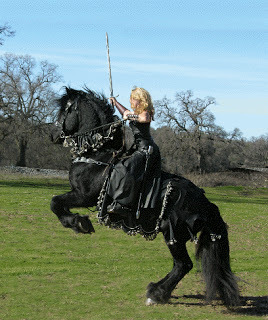 Welcome to one of the final Six Sentence Sundays! Please visit the official site for more wonderful snippets than you can handle.
Welcome to one of the final Six Sentence Sundays! Please visit the official site for more wonderful snippets than you can handle.I've been sharing bits from my medieval epic, The Seven Noble Knights of Lara. Six revised sentences from the very important chapter where everything starts to go to hell are below. There was a lot of concern over the horse portions. Please tell me if this is any more realistic than before (first draft here). And keep reading after the snippet for an idea for all my historical novelist pals!
* * *
Gonzalo drove his fist into Don Álvar’s face so hard that he collapsed at the feet of his horse, which reared with an almost human shriek. With nowhere else to land in the crush of people, its sharp hooves came down on its rider’s flesh. It reared again and again in terror and confusion as knights and pages darted under it, trying to pull Don Álvar to safety. Finally Muño Salido seized the reins and led the horse, still kicking, away. Don Álvar’s teeth bounced and rolled on the soft earth or landed on people’s pointed shoes like fallen pebbles. Shining blood sprouted from his body and raced outward, covering the ground with a steaming red plague.
* * *
Now that the official SSS is nearly over, I've been wondering if it would be a good idea to start a new, more specialized blog hop, for those authors in the audience who write historical fiction. Historical would be defined as fiction that takes place in a time before the author was born. Would you hystericals -- I mean, historicals -- like to hop around the centuries and share short excerpts of your work? Please comment below if you're interested in participating, and I'll ask around, too. Results of this question and full details will appear next Sunday.
Thanks for stopping by! Thanks for Six Sentence Sunday! And thanks for your comments and ideas!
Published on January 20, 2013 00:41
January 16, 2013
May I Compliment You on Your Complement? Homophones
 Now that I've finished the final proofread of No Turning Back, I've found out a few shockers about my writing habits. One, I always type "lead" when I mean the past tense of that verb (that likely comes from a deep-seated psychological story in my head having to do with how I learned to spell "dead"), and two, I always write the wrong version of the homophone pair compliment/complement first, then have to go back and correct it. After checking which one is correct.
Now that I've finished the final proofread of No Turning Back, I've found out a few shockers about my writing habits. One, I always type "lead" when I mean the past tense of that verb (that likely comes from a deep-seated psychological story in my head having to do with how I learned to spell "dead"), and two, I always write the wrong version of the homophone pair compliment/complement first, then have to go back and correct it. After checking which one is correct.So, I though perhaps if I outline the difference between them, it would help me as much as anyone else.
A compliment (noun), with the i, is something spoken in praise of a person or thing. First and foremost, something is complimentary when it's given free of charge. As in the picture above, it's given as a gift, sent with greetings and good wishes. That meaning of the word evolved into the praise we use it as today, and "with our compliments" predates that change. The now easily transitions into a verb now, as in "They complimented her dress." When applied to people, complimentary is often closely related to flattering.
Or, you can do as the theatre folk do, and just say that the free tickets given to certain audience members are "comps." Then there's no worry about whether to use an e or an i.
On the other side, a complement (noun) is something that is complete. It takes the e from that word and brings to mind shades of Jerry McGuire. So, for example, we can have the full complement of personnel in attendance. The personnel roster is complete at that time. The first attested use of complementary was in the phrase "complementary colors." In this case, the colors complement (verb) each other, which is to say that they bring about a contrasting balance that creates a sort of whole within the color spectrum.
So, Renee Zellweger complements Tom Cruise in the above-mentioned movie, although I don't recall them giving each other a lot of compliments.
The best mnemonic device I've come up with is the title of this post. "May I compliment you on your complement?" meaning something like, "May I praise your completeness?"
Published on January 16, 2013 00:03
January 14, 2013
Coming Soon: The Inheritance of the Spanish Dictatorship

In contrast to the way some other countries have handled life after a dictatorship, in Spain, once Franco died, silence reigned. Seen as a necessity to smooth and quicken the transition to a modern democracy, no one made reclamations about the abuses of power, and the old wounds festered.
No Turning Back is my translation of Lidia Falcón's Camino sin retorno. It is the first novel to describe conditions in prisons at the end of the dictatorship and also the first to point out the inherent machismo of both sides of the political coin, making progress for women challenging, to say the least.
The book debuts this month (specifics as soon as I find out!) and I am proud to have had a part in bringing such an important document to the English-speaking world.
The blurb:
Barcelona, 1986: The dictatorship is over and life is free and easy. But what if you can’t forget the seventies?
Elisa’s troubled past comes back to her in the form of her ex-husband, Arnau, who needs her help to exonerate a former comrade. Elisa relives her Catholic childhood, her marriage to Arnau, her blind loyalty to the communist cause, her experiments in feminism, and her prison time to create a twentieth-century emotional history of the political Left in Spain. The women who faced so much adversity with Elisa weave their own perspectives and testimonies into hers, making this more than a novel: it’s an important contribution to history that gives a voice to the silenced.
Can Elisa ever leave the path history has carved out for her? Is there really no turning back?
“Followers of contemporary Spanish history … will now have the opportunity to understand some of its complex factors … through Falcón’s unswerving critical appraisal of Spanish politics. … Knauss’s agile and eloquent translation guarantees that the memory of clandestine resistance is no longer consigned to the past or to scholars.” —from the critical introduction by Linda Gould Levine
My husband, who actually has a Y chromosome, agrees that this book is incredibly important. It's a compelling read for anyone interested in justice. More information, and the book itself, is soon to come!
Published on January 14, 2013 00:08
January 13, 2013
SSS: A New Fiancé
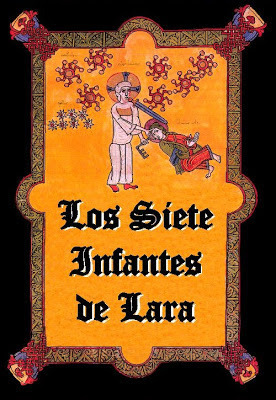 The cover of the program of an academic congress about the medieval epic poem upon which The Seven Noble Knights of Lara is based.For today's excerpt of my revisions of The Seven Noble Knights of Lara, I thought I'd do something new and give you a dialogue-heavy snippet. It's still the first chapter, and the Count of Castile, Doña Lambra's cousin, has come to tell her he's going to marry her off to his most valuable vassal. She is none too pleased.
The cover of the program of an academic congress about the medieval epic poem upon which The Seven Noble Knights of Lara is based.For today's excerpt of my revisions of The Seven Noble Knights of Lara, I thought I'd do something new and give you a dialogue-heavy snippet. It's still the first chapter, and the Count of Castile, Doña Lambra's cousin, has come to tell her he's going to marry her off to his most valuable vassal. She is none too pleased.* * *
“He’s completed his thirty-fifth year.”She couldn’t help but wring her hands at the thought of a grey beard and broken teeth, worms sprouting out of every orifice. Maybe he wouldn’t live that long, then she would administer all the territory they had between them.“Is he landed?”“He has a few parcels in the region of Lara, called Vilviestre.”“A few parcels?”
* * *
That's not the last piece of her mind she's going to give him!
Thanks so much stopping by! I trade comments for comments! Get a lot more wonderful excerpts today at SixSunday.com.
Published on January 13, 2013 00:30
January 9, 2013
How Do You Get to Carnegie Hall?
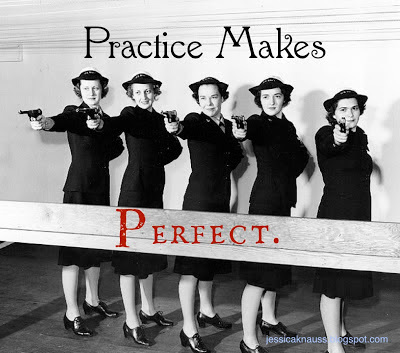 Target practice by WAVES at Treasure Island, California, Feb. 1943. Note that while four are practice aiming, one has a different target!
Target practice by WAVES at Treasure Island, California, Feb. 1943. Note that while four are practice aiming, one has a different target!With the amazing new opportunities for writers to reach their audiences faster than ever, more and more sage advice is being shelled out about how to write well. I recently came across A. M. Schultz's thoughts on the subject, and appreciated his candor.
There really is no other way to become a good writer. Whatever method works best for you, you have to put in the hours.
Luckily for me, I put in most of my training while still a youngling, so I've banked much more than 10,000 hours. I wrote picture books in the third grade and started keeping a diary, probably long before that. In my senior year of high school, my English teacher asked me if I wrote every day. I replied, "Of course!" I was a writer already, and that's that writers do: they write.
"It shows," he told me, beaming.
That wasn't the first compliment I'd received on my writing. All those hours of scribbling began to pay off (in the praise department, which is the most important coin for a beginning writer) fairly quickly. There will always be more to learn, but the world is thankful I got a lot of sketchy writing out of the way when I did.
It's never too late to start, but the bad news is that no one starts out writing Shakespeare-caliber poetry. Good writing must be cultivated, and to do that, you have to write badly for a while. So if your writing leaves something to be desired, the best advice is not to follow some formula or to write at a specific time of day. It's just to keep writing.
And then after you write, rewrite. That's what I'm up to these days.
Published on January 09, 2013 00:18
January 7, 2013
Eligibly Illegible (A Pair of Near Homophones)
"The X Book Contest is open to voting between December 31 and February 27. Both of my books are illegible."
--Author Unattributed for His/Her Protection
I was surprised (and, I admit, I laughed and laughed) by the error here caused by trouble with spelling similar-sounding words. The writer meant to indicate that the books were eligible.
Both of these words are Latinate, and perhaps therefore inherently confusing.
Eligible is an adjective meaning that the noun is able to be elected or selected.
Illegible is an adjective meaning that the text in question cannot be read for any number of reasons.
It's important to distinguish between e and i sounds, and to intervene with a critical eye when SpellCheck messes with them, or else a book that readers can choose may become unreadable. There is no worse fate for any book!
--Author Unattributed for His/Her Protection
I was surprised (and, I admit, I laughed and laughed) by the error here caused by trouble with spelling similar-sounding words. The writer meant to indicate that the books were eligible.
Both of these words are Latinate, and perhaps therefore inherently confusing.
Eligible is an adjective meaning that the noun is able to be elected or selected.
Illegible is an adjective meaning that the text in question cannot be read for any number of reasons.
It's important to distinguish between e and i sounds, and to intervene with a critical eye when SpellCheck messes with them, or else a book that readers can choose may become unreadable. There is no worse fate for any book!
Published on January 07, 2013 00:29
January 6, 2013
Six Sentence Sunday: Beginnings
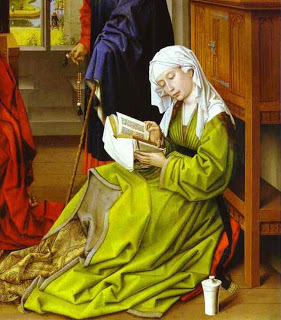
For my little contribution to the farewell of Six Sentence Sunday (click on that for a lot of other great excerpts!), I thought I'd share some of the revisions I'm working on for The Seven Noble Knights of Lara. It can still be improved, I'm sure!
These are now the first six sentences of the novel. Do they grab your attention, or are they too calm?
* * *
The sun began to relent from its long day's punishment of Busto de Bureba. The fish in the river sought out the barely forming shadows cast by rocks and branches. Inside a stone house, under a thatched roof, twenty maidservants and their lady planned a cool evening meal, brought in the washing, and put away the day's sewing without bumping into each other.
Doña Lambra looked out the open door at the fields where her vassals were setting down their scythes and pitchforks for the day. Most of the serfs would return to their tiny homes in town, but some of the overseers lived on the estate, and would come to the main hall for supper. If nothing went wrong, in another seven mornings or so, Lambra would have to provide some kind of reward for successful haying, and the laborers would all expect meals at the haystacks in the meantime.
* * *
Thanks so much for stopping by! I return comments for comments!
Published on January 06, 2013 00:18
January 2, 2013
Revisions
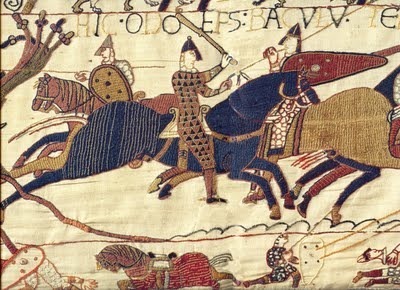 Slice and hack! That's what revisions are for!
Slice and hack! That's what revisions are for!Now that I've finished the first draft of The Seven Noble Knights of Lara, it looks as if 2013 is all about revisions for the foreseeable future. Last week, I started sharing the book with my husband. With his help, I've come to the wrenching decision to cut -- absolutely get rid of every last word -- the first chapter.
The first chapter preoccupied me inordinately form the beginning. I started with Chapter II because I was so worried about how to start the book and draw the reader in. A previous consultant had commented that since it's going to be a violent book, it should start with a violent scene. In the the first version of Chapter I, a small boy gets murdered on the first page.
But the chapter had too many problems compared to what it brought to the story. I tried to untangle the political mess I'd made for myself by writing without researching first, got rid of the poor murdered boy in order to introduce actual important characters, and shared that new version with my husband. It was the first time he's had any notion of what I've been agonizing over for two years. He's far too kind to have said it, but I imagine he was thinking, "Dear God, she's wasted two years of her life on that drivel?" Luckily, he was able to honestly enthuse about Chapter II, and lopping off Chapter I has put the breath of inspiration into the revisions.
Chapter II begins slowly and the only violence is off-screen, when they have to catch and skin rabbits for supper. So of course, the old anxiety resurfaces: that it will not be exciting enough to draw readers in and to set up their expectations for the backstabbing and bloodletting that is to come.
Normally, beginnings aren't such a problem for me, while endings make me run for cover. With The Seven Noble Knights of Lara, I'm pretty thrilled about the ending, so perhaps it's only right that I should have trouble with the start.
I'll try to stick with that breath of inspiration as I go through the first revisions. When I finish with that, an editor gets the masterpiece. I'll leave the decision about how to start the darn thing with the professional.
And when this all gets decided, I'll start an "outtakes" file for everyone's amusement.
Published on January 02, 2013 00:29
December 31, 2012
Just Toss the Ashes / Gracias por la muerte by Marta Merajver-Kurlat
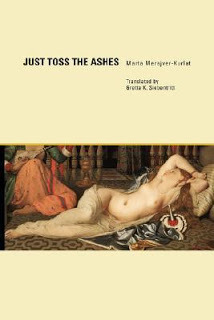 This author has a gift for storytelling that draws the reader in, despite the main character being dead on the first page. Sylvia is definitely the main character, and has a strong presence in her absence. It becomes clear that Sylvia felt alone in the world, unable to connect with anyone in a way that meaningful for her. The reader learns all about her through the people she left behind. She writes a suicide note and addresses it to her ex-husband and son, from who she also feels fundamentally distant. These two men have to piece together some meaning for their relationships with Sylvia, but as they go about the business of disposing of the body and having a funeral service despite her wishes (hence the title in English, Just Toss the Ashes), and finally moving on with their lives, they include more and more people who were touched by Sylvia's life in lasting ways. She was alone only in her mind.
This author has a gift for storytelling that draws the reader in, despite the main character being dead on the first page. Sylvia is definitely the main character, and has a strong presence in her absence. It becomes clear that Sylvia felt alone in the world, unable to connect with anyone in a way that meaningful for her. The reader learns all about her through the people she left behind. She writes a suicide note and addresses it to her ex-husband and son, from who she also feels fundamentally distant. These two men have to piece together some meaning for their relationships with Sylvia, but as they go about the business of disposing of the body and having a funeral service despite her wishes (hence the title in English, Just Toss the Ashes), and finally moving on with their lives, they include more and more people who were touched by Sylvia's life in lasting ways. She was alone only in her mind.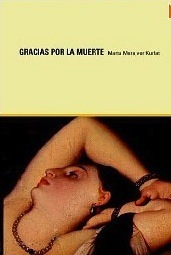 With uncanny psychological realism, the author introduces one character after another, all well developed and with surprising new perspectives on Sylvia and life in general. Each point of view adds a piece to the fascinating puzzle that is this book and was Sylvia. It asks questions about the meaning of life and death and doesn't wrap everything up neatly. This is a book for readers who want to spend time with these questions and come up with their own responses.
With uncanny psychological realism, the author introduces one character after another, all well developed and with surprising new perspectives on Sylvia and life in general. Each point of view adds a piece to the fascinating puzzle that is this book and was Sylvia. It asks questions about the meaning of life and death and doesn't wrap everything up neatly. This is a book for readers who want to spend time with these questions and come up with their own responses.See an illuminating interview with the author here.
Published on December 31, 2012 00:22

